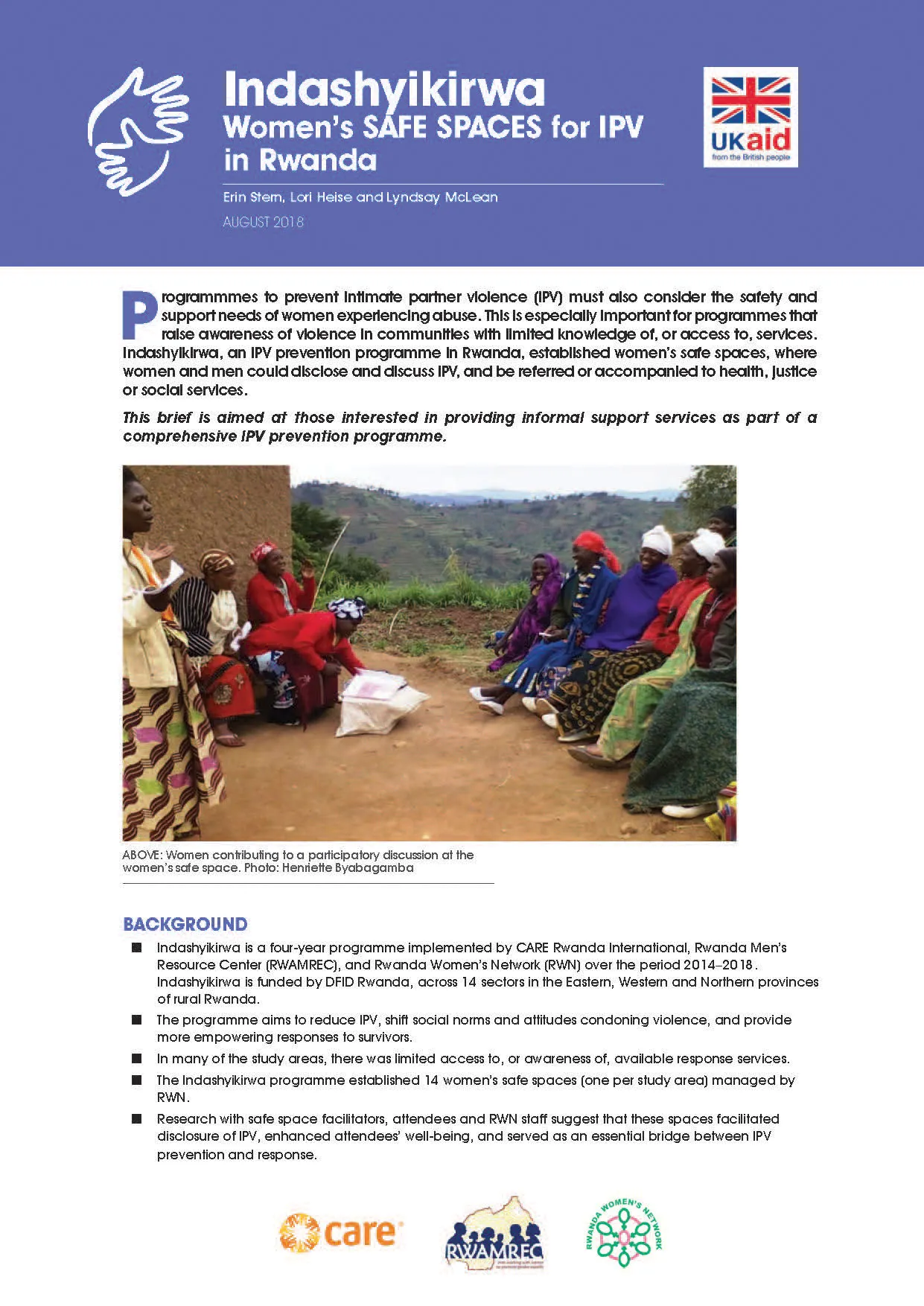About this brief
Programs to prevent intimate partner violence (IPV) must also consider the safety and support needs of women experiencing abuse. This is especially important for programs that raise awareness of violence in communities with limited knowledge of, or access to, services. Indashyikirwa, an IPV prevention program in Rwanda, established women’s safe spaces, where women and men could disclose and discuss IPV, and be referred or accompanied to health, justice or social services.

